Russia is on a quest to save traditional marriage. Is it still possible?
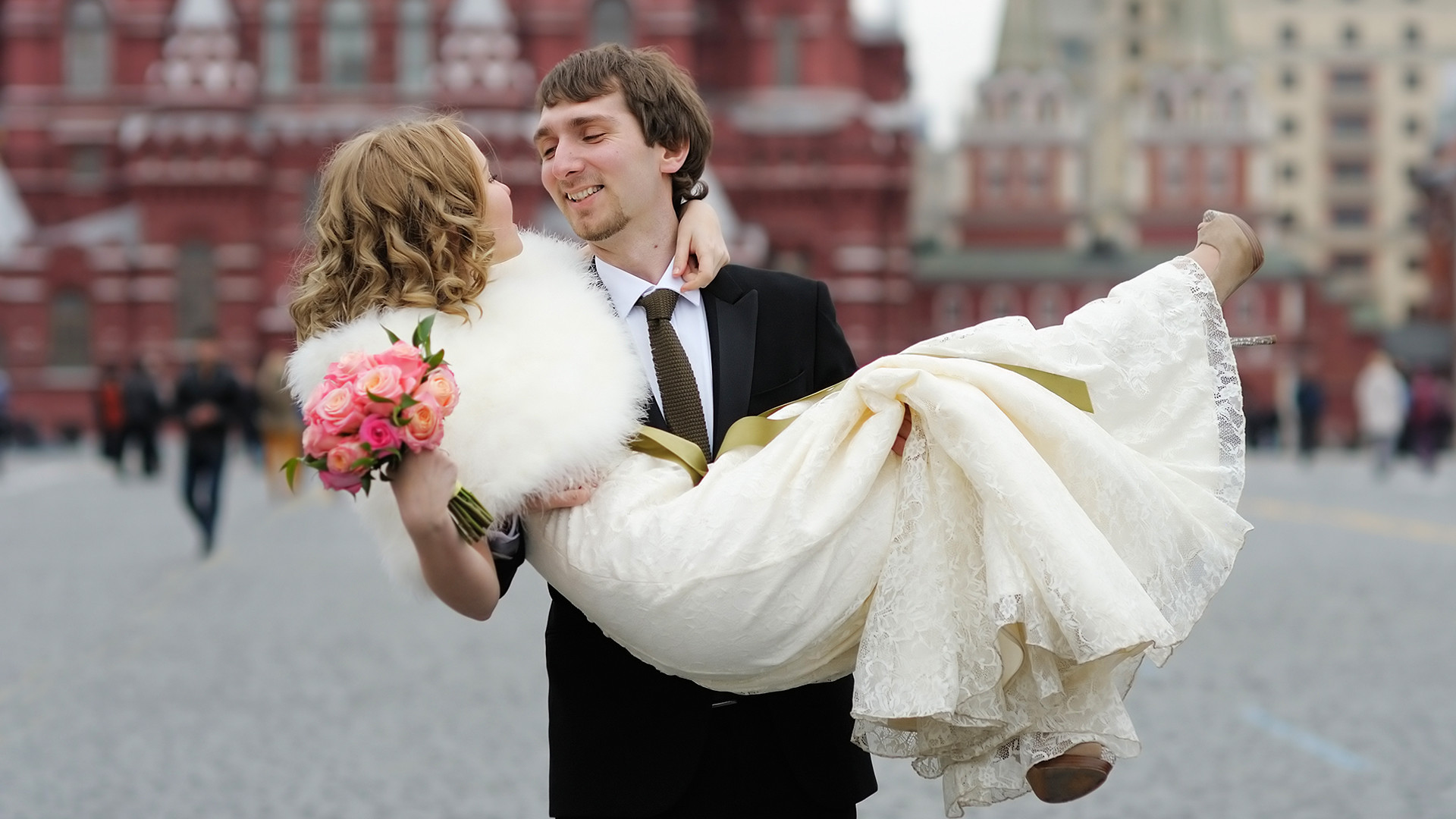
“Where are you off to again so late at night? You’ve been dating for a year, it’s time to get married! He is using you, without a marriage certificate he is nobody to you!” These are the words 24-year-old tester Yekaterina would hear her mother say every Friday as she was leaving to visit her boyfriend, 29-year-old programmer Yevgeny. In Russia, this conservative view of romantic relationships is still very common.
Yekaterina and Yevgeny have been dating for three and a half years. She is a demure petite woman with chestnut hair and a charming smile, he is a fair-haired tall guy, who looks more like a Russian superhero, always ready to protect her. They were introduced to each other by their parents. It is also their parents who have, for the past two years, been urging them to get married. Whereas for Yekaterina and Yevgeny, wedding dresses and registry offices have, for the past two years, been the stuff of nightmares.

“They say that traditions must be observed, that a lavish wedding, followed by children, is a must. Whereas, I believe that one should get married not under compulsion, but when both partners are ready for it. What difference does it make to parents? After all, a marriage stamp in your passport will not change how you live and marriage is no guarantee of eternal love,” says Yekaterina.
According to a 2018 study by the Levada Center, Yekaterina and Yevgeny are among the 47 percent of Russians who prefer cohabitation to official marriage.
At the same time, the Russian state - through various initiatives – seeks to emphasize the importance of marriage. Among other things, the amendments introduced to the Russian Constitution in 2020 guarantee the protection of “family, motherhood, fatherhood and childhood” and of “the institution of marriage as a union between a man and a woman”.
Children should have it all
In addition to declarations, the state supports young Russian families with money. In the early 2000s, Russia launched a state program whereby young families could receive subsidies to buy housing. The program will remain in force until 2025 and is open to married couples aged under 35, who have a stable income but no housing of their own. The state undertakes to pay them from 30 to 35 percent of the value of a house or apartment bought with their own money or with a mortgage.
In addition, both spouses can receive an income tax refund on the purchase of real estate and interest on a mortgage. Thus, they can get 13 percent of their salaries which have been previously paid as a tax back. There is a cap on the amount from which a tax refund can be claimed: it is set at 2 million rubles (approx. $27,400), in other words, each spouse can get a refund of 260,000 rubles (approx. $3,560). The only prerequisite is that the claimants’ salaries must be fully above board.

Upon the birth of a child, a family is entitled to two cash benefits at once – a one-off state allowance (in 2020, it stands at about 18,000 rubles (approx. $246), but the amount varies, depending on the region) and a so-called maternity or family capital. In 2020, for the birth of the first child, the maternity capital is 466,600 rubles (approx. $6,300); for the second, 616,600 (approx. $8,400); and for the third, 450,000 rubles (approx. $6,100) that can only be used towards mortgage payments. Maternity capital is not paid out in the form of “real money”: instead, it can be invested in the purchase of real estate or in the child’s future education.
Pregnant women and mothers of children aged three years and under are entitled to free medicines and dairy products. Low-income families can apply for monthly childcare benefits for children aged under seven.
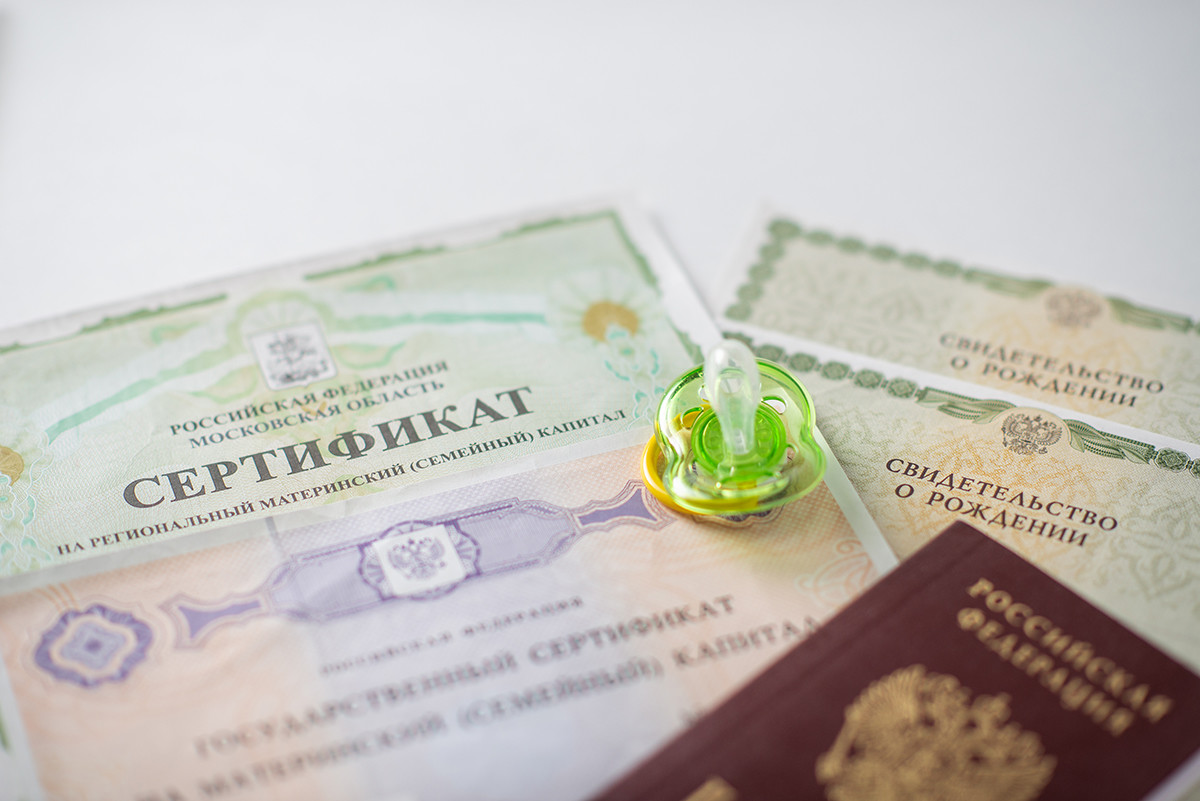
Families with three and more children are entitled to compensation when purchasing school uniforms, to free parking and to other benefits. Young parents with children also have priority over other applicants when entering a university (provided they have a passing grade and submit their children’s birth certificates). Preschoolers whose parents are students or serve in the armed forces can attend kindergarten, use public transport and visit museums free of charge.
Red tape and rejections
According to 33-year-old Nadezhda Nadezhina, a mother of three from the district of Lyubertsy in south Moscow, the state is doing everything to encourage people to get married and have children, however, when applying for benefits, families still face a lot of red tape.
“Due to errors in documents, we were refused childcare benefits twice. Also, it is a shame that [maternity] capital for a third child can be spent only on a mortgage. We don’t want to take out a mortgage. It would be better if they compensated the cost of children’s study groups and books,” Nadezhina says.
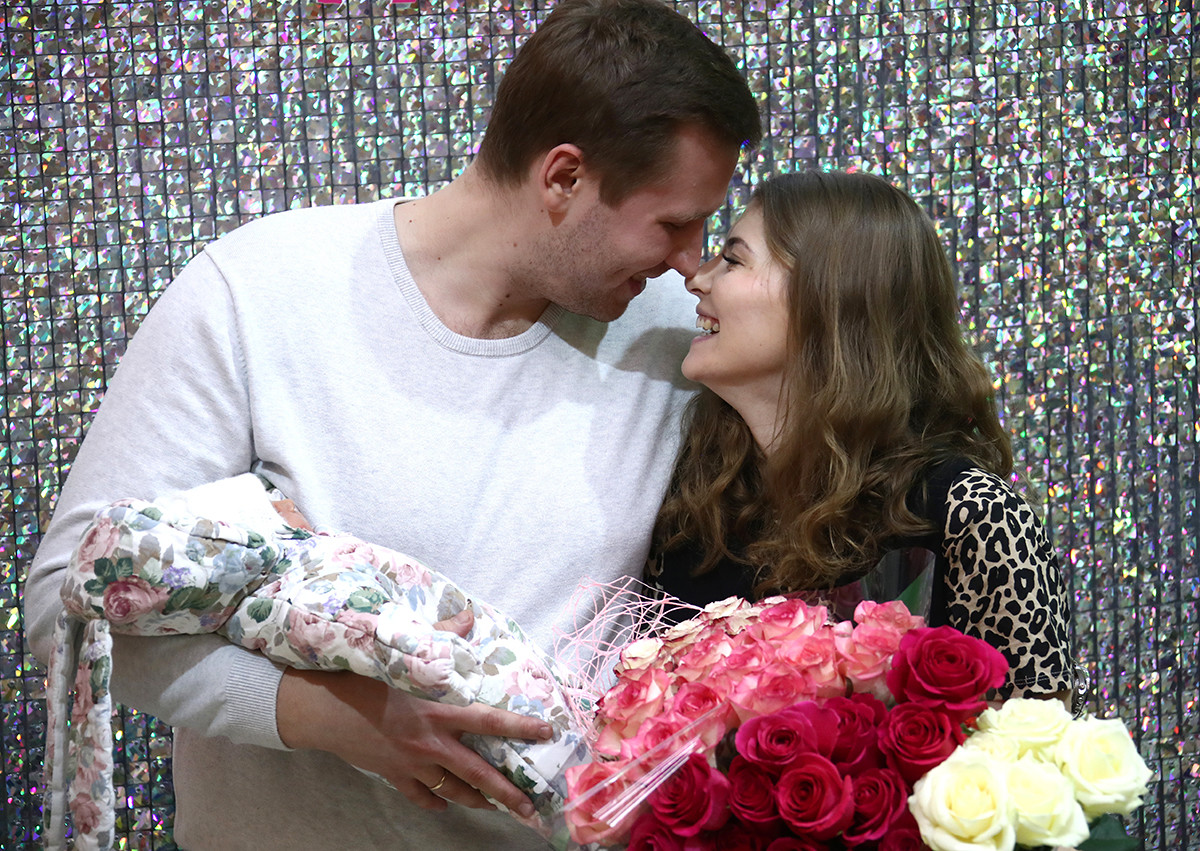
Moscow. A family with a newborn child during discharge at the maternity hospital No. 29.
Valery Sharifulin/TASSYulia Uchayeva, a 29-year-old housewife and mother of three from Vladimir (186 km from Moscow), also faced problems when applying for benefits.
“We waited for the maternity capital for our third child for three months. Furthermore, they sent us our documents back because of minor errors. And we did not receive childcare benefits, because we had sold our car and bought a new one and the state interpreted the money from the sale as our income and did not pay us anything,” she complains, adding, however, that “still, the state is trying hard”.
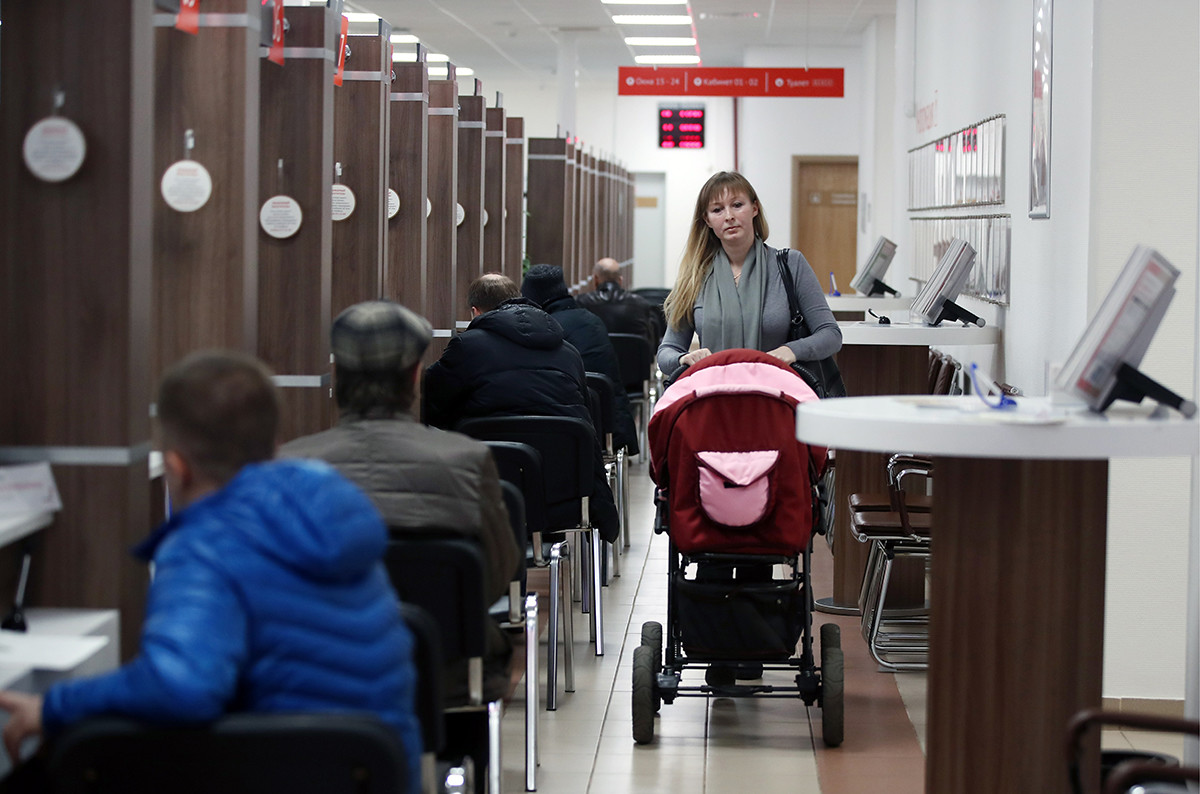
Moscow. A woman with a child in the center of state and municipal services
Valery Sharifulin/TASSBuying housing under the Young Family program does not always go smoothly, either. Many families share stories on forums that one can spend years (sometimes more than a decade) on a waiting list for a housing subsidy, and even then, some families are rejected - most often when one of the spouses turns 36 or when a family, having given up on the long wait, buys housing with their own funds.
Global population decline and its causes
Despite all the benefits and allowances, over the past 30 years, the annual number of marriages in Russia has dropped sharply, while the number of divorces, on the contrary, is growing.
According to figures released by the Rosstat federal statistics agency, between 1990 and 2019, the number of registered marriages decreased by 26.9 percent - from 1.3 million in 1990 to 950,000 in 2019.
In the same period, the number of divorces increased by 10.8 percent - from 559,900 in 1990 to 620,700 in 2019.
Meanwhile, the birth rate dropped by 25.2 percent - from 1.98 million (1990) to 1.48 million children (2019).
One of the main reasons for the deterioration of the demographic situation in Russia was the drastic decline in the birth rate in the 1990s, says Karina Pipia, a sociologist with the Levada Center.
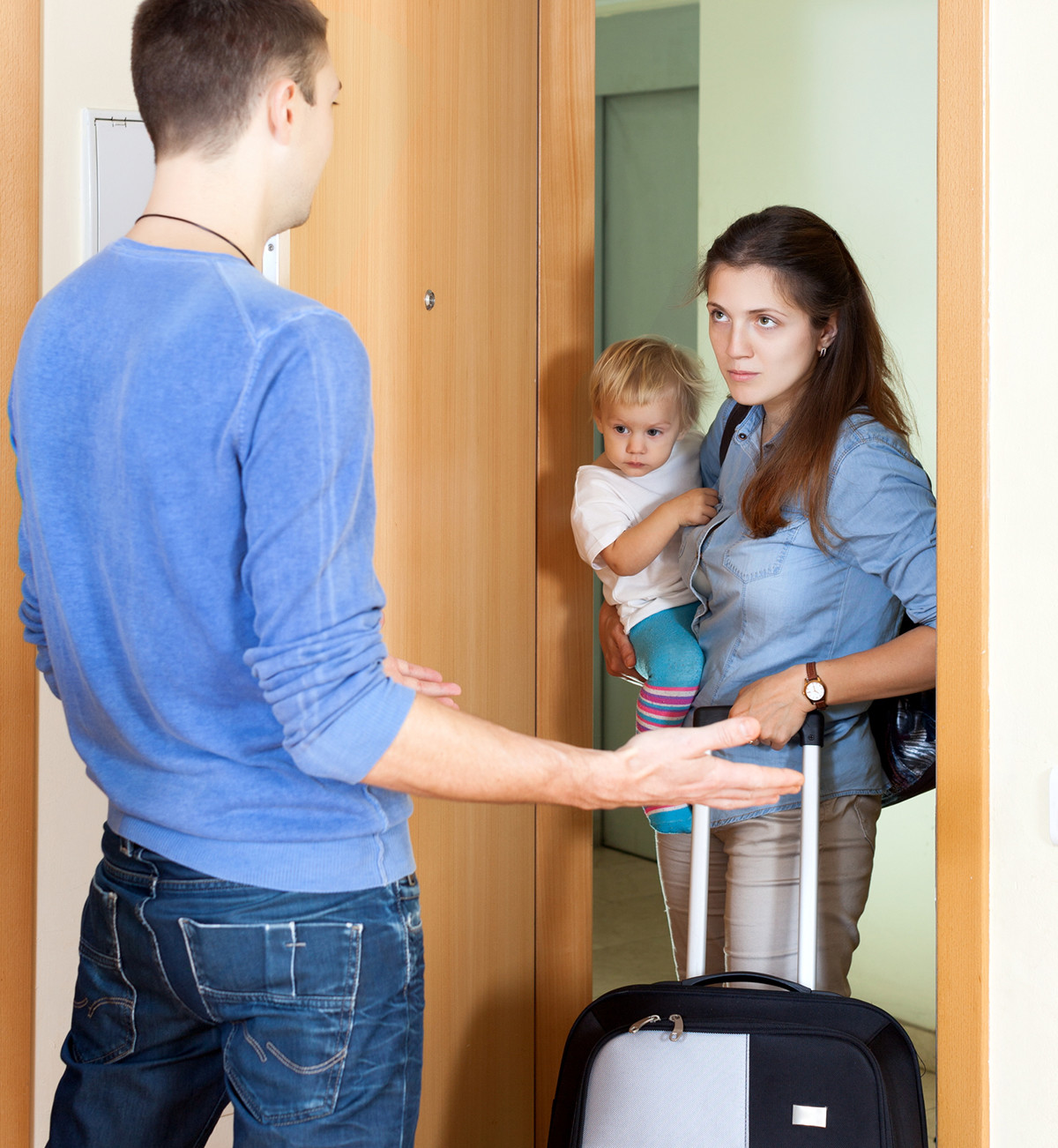
“The not so numerous generation born in the 1990s has already reached reproductive age. So, they are not very numerous, and foreign migrants arriving in Russia cannot compensate for the negative dynamics. For example, in 2018, children born in couples where at least one of the parents is a foreigner made up only 4 percent of all births in the country,” Pipia explains.
Another reason is that modern men are afraid to take responsibility for a woman and a family, and women subconsciously react to this by deciding not to have children, says sociologist and psychologist Yelena Suvorova.
“After the Great Patriotic War, there was a sharp drop in the male population and women raised their children, including sons, by themselves. The sons saw this and got used to the fact that all important issues are decided by the mother, the woman. So they relieved themselves of responsibility for important decisions in their own families too, placing it on their wives,” Suvorova argues.
Russian children’s rights ombudswoman Anna Kuznetsova has attributed the growing number of divorces to early sexual activity.
“These days, judging by statistics, everyone starts sexual activity earlier, while marriage and childbirth has been shifted to later in life. In other words, social preparedness comes a little later, as opposed to physical,” Kuznetsova said in July 2020.
Russians enter puberty at the age of 14-15, while the average age when they get married and have their first child is 29-32. The main task of the state is to minimize the gap between the two, the ombudswoman believes.
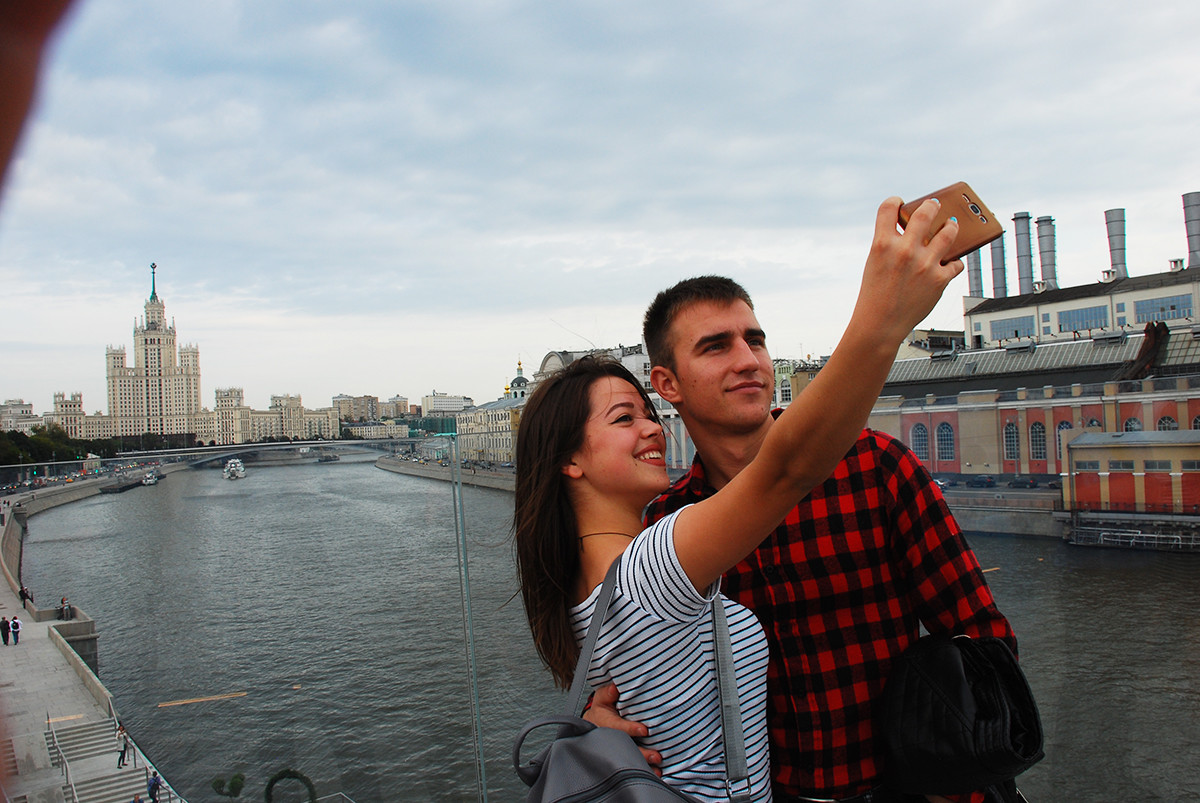
According to the VTsIOM pollster, the main reasons for divorce are poverty and infidelity. 24-year-old Yekaterina, who featured in the beginning of this article, believes that the drop in the number of marriages has to do with the fact that the government is in fact concerned only with statistics rather than with families’ happiness.
“The state needs families only for procreation and is not concerned with the other aspects of marriage - how much families earn, whether the husband beats his wife (in 2020, Russia has still not adopted a law on domestic violence, while the first instance of domestic violence is punishable only by an administrative fine - ed). They want numbers, not happy families,” she concludes.
If using any of Russia Beyond's content, partly or in full, always provide an active hyperlink to the original material.
Subscribe
to our newsletter!
Get the week's best stories straight to your inbox